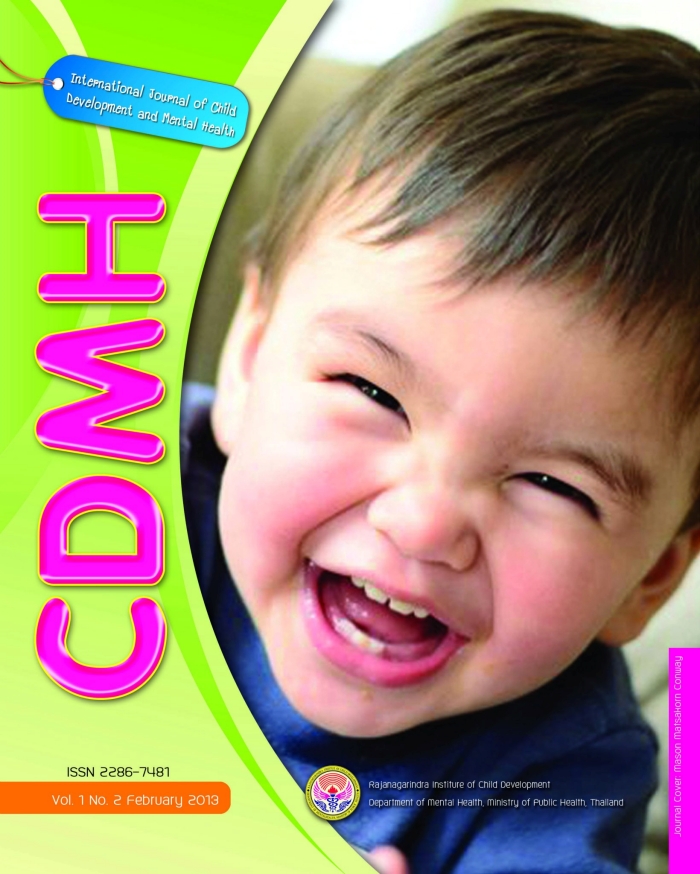Providing Home Care by Caregivers of School Age Children Who Are Infected with HIV/AIDS
Main Article Content
Abstract
The aims of this research are to study the situation of taking care of school age children
who were infected with HIV or AIDS (HIV/AIDS) at home by a caregiver and then to study the factors involved in the care of a HIV/AIDS child. Data was collected from 10 caregivers of school age children who were infected with HIV/AIDS and was collected by using in-depth interviews, focusing on group discussions and through participant observations. After that, the data was analyzed by qualitative content analysis. The results gathered are from insight into daily routine care, prevention of infection and HIV transmission, follow-up care of patients with unusual symptoms, making an appointment for an examination with a doctor, psychosocial care and seeking the network’s home care. There are conditional factors related to care such as: the children and their caregiver’s health, the potential for care both of the caregiver and children, the economic status of the family, the relationships within the family, home care service and the health care staff. The study results demonstrate the need
and give suggestions for the development of models of home care focusing on participation of home caregivers and developing health care personnel’s potential to best meet the needs of all the people involved in the specific context of HIV/AIDS child home care.
Article Details
The authors retain copyright and permit the journal the copyright of first publication
Articles, once having passed the review process and accepted for publication in the CDMH Journal, are copyrighted under the CDMH Journal, Department of Mental Health, Ministry of Public Health. Please be aware distribution of CDMH Journal content for commercial purposes without permission is expressly prohibited. However, distribution with intent to educate, advocate, or spread awareness within the general public and research communities is permitted and encouraged with the understanding that the CDMH Journal Editorial Board do not hold jurisdiction or liability for any accompanying comments, text, or information from third parties, either in favor for or against the original article’s assertions, conclusions, methodology, or content.


